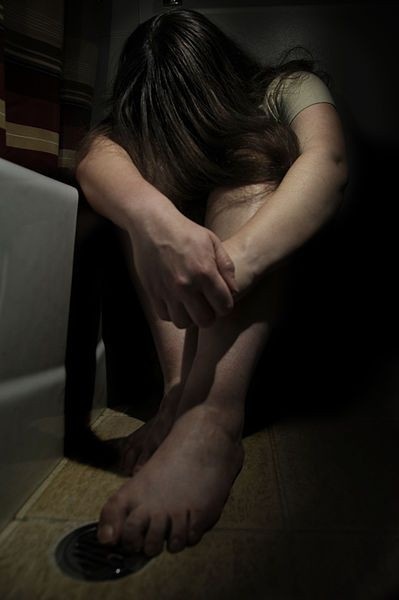Child Abuse Linked to Stunted Brain Growth, Emotional and Sexual Problems as Adults

Women who were sexually or emotionally abused as children tended to have deficits in the growth of certain areas of their brain, a new study says.
Researchers found that women who were sexually abused had less growth in the part of their brain associated with sensation, while those who experienced emotional abuse were affected in the parts of their brain responsible for self-awareness, according to Time.
The study was conducted using a survey and a brain scan on 51 women aged 18 to 45, 28 of whom had experienced serious abuse as children including combinations of neglect, and emotional, physical and sexual abuse. The other 23 had no experiences of abuse. They found that women who had experienced abuse didn't develop cortical thicknesses of a normal size in the parts of the brain affected.
Cortical thickness can tell doctors how healthy a section of the brain is. Just like muscles, the more a section of the brain is used, the larger it gets. However, the brain can change the way it sends signals in order to deal with certain stressors, such as abuse, in an effort to block off as much as possible from the regions that were hurt — this can cause thinning. Researchers saw that women who were abused had an average thickness of three to four millimeters, while a healthy thickness was an average of five millimeters.
The women who experienced sexual abuse showed "changes in the somatosensory cortex, the area that process input from the body to create sensations and perception," Jens Pruessner, associate professor of psychiatry at McGill University in Montreal, said. The different regions of the somatosensory cortex are responsible for sensation felt around the body.
"Women who were sexually abused had [cortical] thinning in the area where the genitalia were located." Pruessner said.
Furthermore, thinner cortexes were also associated with a lower pain threshold, causing women to experience pain before pleasure in the areas affected. Women who are sexually abused showed symptoms including reduced desire, sensation, and also chronic genital pain.
Emotional abuse victims showed thinning in other parts of the brain, causing symptoms of depression, moodiness, and extreme or dulled emotional responsiveness.
"We (saw thinning) in areas that have to do with self-awareness and emotional regulation, areas in the prefrontal cortex and medial temporal lobe, which typically show activation when people are asked to think about themselves or reflect on their emotions," Pruessner said. "As adults, (they have difficulty) reflecting on themselves and finding the right way to deal with emotions."
In the United States, more than three million reports of child maltreatment are received by state and local agencies each year. On top of this, more than 740,000 children are treated in emergency rooms as a result of violence, according to the Centers for Disease Control and Prevention.
Pruessner and his team hope that the results of the study will lead them to understand what goes wrong during and after abuse, and ways in which they can possibly reverse the damage. "That is our long term hope," Pruessner said.
Source:
Pruessner J, Heim C, Mayberg H, et al. Decreased Cortical Representation of Genital Somatosensory Field After Childhood Sexual Abuse. The American Journal of Psychiatry. 2013.



























